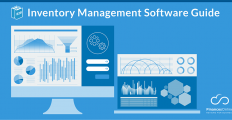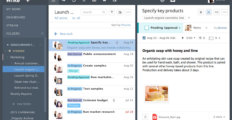When HR software first appeared, it was a relatively simple tool that allowed leaders to manage employees’ files and process their payrolls. Newer systems offer an array of options for HR managers to organize their workload and focus on employee experience by gathering crucial insights. Data shows that in 2021, venture capitalists spent over $17 billion on HR technology, a massive increase from the $5 billion spent in 2019. In a post-pandemic era where millions of professionals work from home, organizations must carefully look into tech trends to consider which ones will elevate their workforce’s experiences. As a result, HR professionals are more engaged as they feel more involved in their company’s objectives. Not to mention a well-crafted HR management system helps everyone monitor their performance, pick up the pace when needed, and get involved in continuous training.

7 Tech Trends Organizations Should Consider Seriously
1. AI Integration And Chatbots
Artificial Intelligence is a tech trend organizations should consider to simplify many HR-related procedures. Anything from recruiting to employee onboarding and payroll can benefit from AI tools. Thanks to hyper-automation, companies can train AI software to process their payroll, review CVs based on experience, and streamline everyday tasks. Furthermore, they may add chatbots to schedule interviews with applicants, answer employees’ FAQs, and reply to any questions candidates have. AI software can process, analyze, and interpret millions of pieces of data quickly and make decisions based on an organization’s needs. It can also collect data regarding employees and their requirements, and therefore, HR professionals can know when someone is unhappy, unproductive, or about to quit their job. Lastly, AI can help businesses write engaging job descriptions that attract suitable candidates and generate insightful questions for the applicants’ interviews.
2. Work Flexibility
Remote and hybrid work is making massive waves in today’s workforce, and HR managers have a plate full of challenges. They must monitor each employee’s performance, health, and needs in different time zones and jurisdictions, as well as ensure everyone uses the same tools for work and communication to maintain team dynamics and productivity. No matter how great remote work is, many professionals are faced with significant mental issues. Telehealth services offer hassle-free online sessions, while many employees admit they would be open to AI therapy since they feel more comfortable talking to non-humans. Additionally, AI can be enforced to monitor employee productivity through time tracking and website usage metrics. As a result, HR managers have a clear picture of how much each person works, the habits they build, and what improvements they must make to avoid burnout.
3. Data-Based Decision Making
Smaller businesses tend to process HR functions manually and don’t focus too much on data and insights. Instead, they care deeply about increasing their staff’s productivity, engagement, and retention rates. On the other hand, larger organizations enforce the use of thousands of apps to track their employees’ performance and overall experience. Some have even created entire people analytics teams to gather data and apply it to make more accurate decisions regarding talent management. Data helps them align people’s talents with company objectives, carve strategies based on trends, and gain significant insights into people’s satisfaction and struggles. As a result, HR managers identify possible dangers before they become destructive and approach employees to help them improve and develop. Managers are also notified when someone is nearing retirement and can start the hiring process for a replacement. Through data, they know when somebody is ready and deserving of a promotion or when they require upskilling and further training.
4. Psychometric Assessments
In today’s highly competitive job market, companies work tirelessly to find the most skilled candidates who will fit in with their culture. So, one of the most valuable tech trends organizations must consider is psychometric assessments. Some of the largest conglomerates are implementing this procedure during their hiring processes. These standardized tests can measure one’s cognitive skills, personality characteristics, and professional abilities. They measure a few of the most important factors, such as problem solving, critical thinking, reasoning, emotional stability, and openness. Companies can even go further and create game-based assessments since gamers worldwide have increased exponentially. As a result, candidates are more engaged during the hiring process, and HR managers can gather more accurate and objective data. These tests foster diversity since machines are free of biases. More importantly, employers can improve retention when they hire professionals who are a perfect fit for a role and align with their company culture.
5. Metaverse
This is one of the most revolutionary tech trends organizations should consider for their HR practices. It is already estimated that by 2026, many professionals will spend at least one hour per day using the technology of the metaverse. For HR managers, utilizing the metaverse means offering candidates a more elevated experience during the hiring process. For example, they can create a lifelike virtual tour of their potential workplace. Additionally, employees from all over the world can participate in virtual meetings without using their computers but in a hands-free manner. For instance, they may add their avatar to a virtual conference room and sketch their ideas in front of everyone. This is referred to as Augmented Reality (AR), which is a combination of the digital world with physical aspects. Consequently, companies can increase people’s engagement and productivity, getting rid of feelings of loneliness and bridging the geographical divide.
6. Diversity, Equity, And Inclusion Solutions
Diversity in the workplace is something many companies put at the forefront of their priorities. According to Pew Research Center, roughly 32% of employees state that it’s extremely or very important for them to have a workplace with different races and ethnicities. That’s why organizations should consider tech trends that will help them enforce DE&I solutions into their daily activities. One way AI technology can help HR procedures is by identifying biased language during the hiring process or onboarding. This is particularly important to ensure pay equity. Furthermore, AI software produces analytical data regarding each employee’s performance and assists HR professionals in proceeding with promotions equally. Last but not least, AI can bridge generational gaps and ensure fair hiring processes that don’t exclude anyone based on their age.
7. Cloud-Based Systems
Another tech trend organizations should consider is cloud-based systems. Companies that employ many remote employees allow everyone to participate in conference calls, host webinars, work on documents simultaneously, and start video calls. HR managers can efficiently train new hires by providing access to all necessary learning material. Also, they encourage everyone to use self-service communication portals and recognize and reward top performers. Fortunately, cloud-based systems don’t require installation like traditional HR software. IT experts don’t have to work extra to build and maintain these infrastructures; companies only need to pay a monthly or annual fee so every team member can have unlimited access to the cloud services. Finally, a company’s security is improved since only approved individuals can access certain documents.
Conclusion
Human Resources should always stay ahead of the game and strive for innovation as they adapt to the corporate field. AI software can simplify arduous and time-consuming procedures and free up time in HR managers’ calendars to work on every individual’s progress and development. However, they should not blindly trust AI to complete every single aspect of their job. Sometimes, human minds and critical thinking are needed to draw conclusions and make decisions.






















Leave a comment!